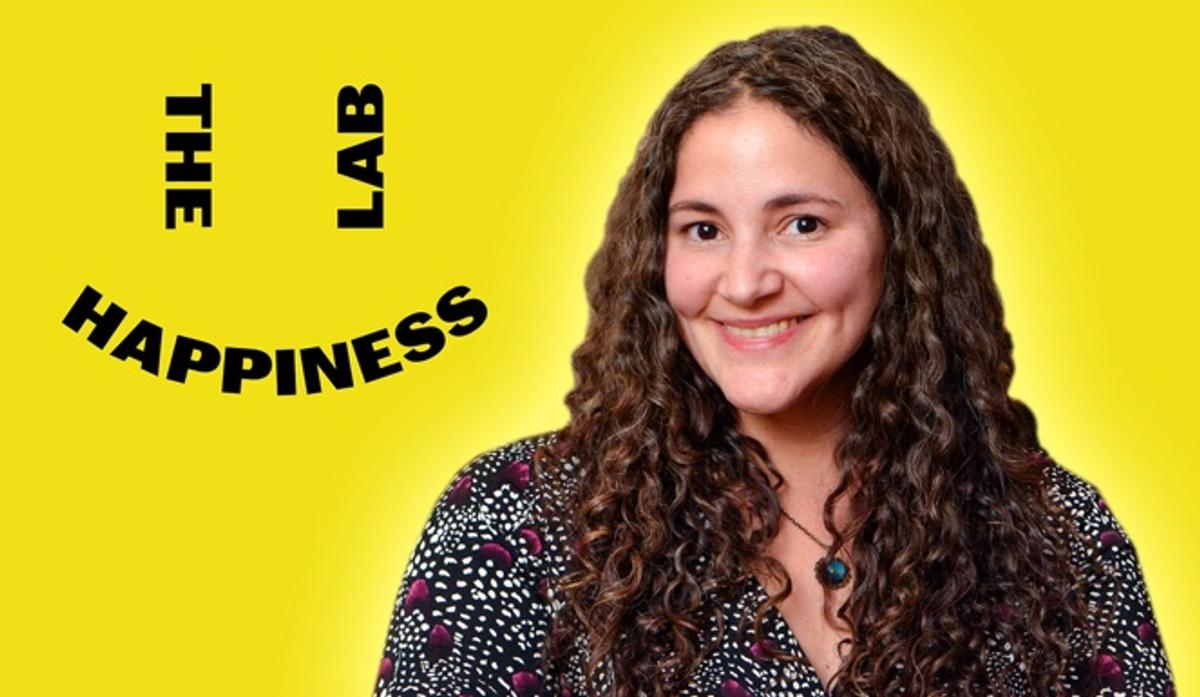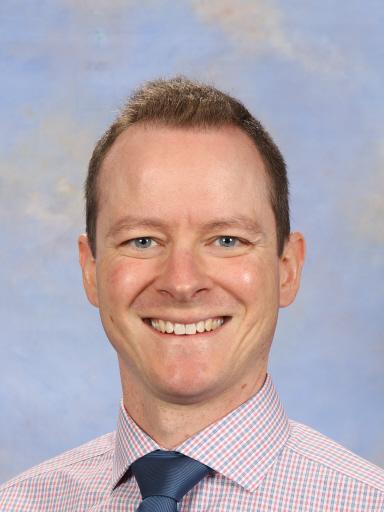COLLEGE CHAPLAIN

Happiness or Joy in Sickness?
Happiness is all in the mind. That’s what Dr Laurie Santos from Yale University argues in her podcast, The Happiness Lab. Santos uses the latest neuroscience to explain how to really make yourself happy. The curious thing about her research is that happiness is not a feeling. How we feel is not our happiness according to Santos.
Her study of neurology has led her to conclude that: ‘We have these intuitions about happiness that are wrong. Our brains aren’t necessarily built to improve our mood. Becoming happier routinely requires us to ignore our impulses’.
This goes against how we might normally respond to our impulses: ‘It’s cold outside, I won’t get up to exercise, because it’s warm in bed and I feel better if I just rest.’ Of course, if we keep giving into the warm feeling of the bed and never exercise, then our health and our happiness will decline, even though the impulse to rest felt like it was healthy and would make us happy.
Dr Santos goes on to argue that cataclysmic moments, like COVID-19, feed our impulses to feel sad, depressed, fearful—which we cannot stop feeling—but she also argues that moments of widespread reassessment and rearrangement are just the thing that our brains need to reassess and rearrange our lives. If we seize this opportunity, according to Santos, we will stop simply giving into our impulses and feelings. Doing so creates new neural pathways that can alter our sense of happiness, even in the face of terrible sickness.
Santos’ podcast is factual and funny, and if you find your brain interesting (and who doesn’t, we all love ourselves) then I reckon you should check it out. Santos has proven incredibly popular at Yale University and on her podcast because she seems to be saying something radically new—healthiness and happiness don’t go hand in hand. However, God has been saying this to us in his word for millennia. Being healthy is not all there is to happiness, and happiness is not healthiness, despite what a giraffe in a travelling caravan might tell you.
Santos claims our brains are not necessarily geared towards our own good. They are susceptible to bad habits that corrupt our mental, emotional and physical health. Paul the Apostle says the same thing of our minds in Romans 1, that they are darkened by sinfulness, given over to impulses in the body and a ‘…depraved mind, so that they do what ought not to be done’ (Romans 1:28). As such, we confuse the impulses of our bodies to be what our bodies need, and so Paul outlines a litany of destructive behaviours that humans are susceptible to and then observes that we ‘not only continue to do these very things but also approve of those who practice them’ (Romans 1:32).
Thankfully, because of Jesus, our minds don’t have to stay that way. The wonderful news of the Gospel identity we can have in Jesus is that it actually changes not just our standing before God, but the state of our minds. Like COVID-19, the Gospel is an earth-shattering phenomenon. It is a cataclysm that transforms body, soul and mind. Paul goes on in Romans 12 to observe that Christians are ‘…transformed by the renewing of your mind’ (Romans 12:2).
The cruel reality is some sicknesses do not go away. We are always going to feel them in our bodies, so if we limit happiness to how we feel then we cannot be happy if we’re sick. As such, we need something more than just our feelings. If our happiness is going to come through not being a slave to our feelings, but instead transforming and maturing our minds, then we need to persevere in the face of our sicknesses, especially those that may never leave us or those we love.
Not only do Christians trust in what Jesus has done for them in his death and resurrection, we also model our approach to life on him. What he pursued and valued, Christians pursue and value. If you spend even just a few minutes reading through how Jesus lived his life you will see that he did not pursue happiness, instead he pursued suffering for us, so that we might rejoice in our suffering.
That’s what Jesus’ little brother James wrote: ‘Consider it a great joy, my brothers and sisters, whenever you experience various trials, because you know that the testing of your faith produces endurance.’ (James 1:2-3). Christ himself endured many trials, right up until death, for this was where his faithfulness, not his feelings led him.
Living like Jesus in the face of sickness will mean ignoring our impulses that transmit the lie that our lack of health means there is no joy in this life. There may well be no happiness, but there can always be joy, because if our identity is in Jesus and not in our health, then there is always hope.
If I’m healthy or if I’m sick, I can always find joy that I am enduring in Christ. Our life can be affected by how we feel about it, but our life should always be defined by what we know about it. James says the Christian knows that the testing of their faith produces endurance, and the full effect of endurance is that we ‘…may be mature and complete, lacking nothing’ (James 1:4).
If we know that we are mature in Christ then even when we are sick we lack nothing and are freed for everything. We are free to feel unhappy, to feel pain, free to have the space to fail, to feel disappointed, and to find life hard. We have the freedom to feel all these things, confident that they do not change what Jesus has endured for us, and that we can endure all the more in him.
Depression, anxiety, COVID-19, these can all increase our reliance on God’s strength. Pursuing joy in Jesus’ deliverance in the face of these trials is never a wasted experience. Pursuing mature joy, rather than healthy happiness, cannot destroy our identity in Jesus Christ. The relief this brings can ironically allow us to enjoy our lives even more!
There is much in this life to enjoy and feel, and it’s all given to us by God. But if our pursuit of these things is simply for the feeling they give us, then we will be crushed if those feelings are taken away. Instead, we must rejoice that Christ crushed sin and death for us to make us mature in him, so that we are never to be taken away from his saving love.
Gareth Tyndall | College Chaplain



